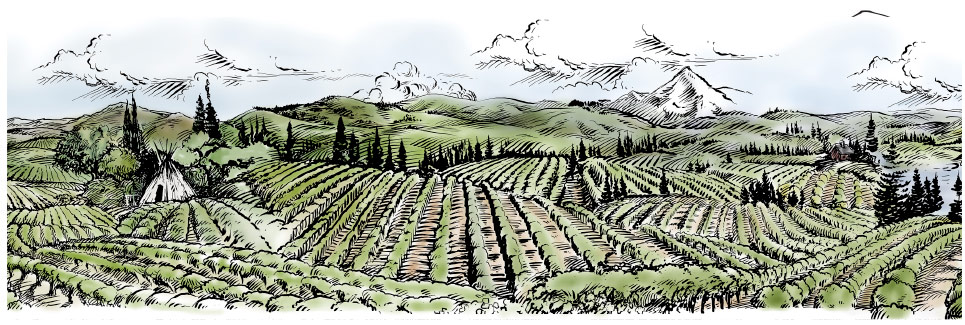Size Matters: Quality & Scale in the Wine Industry
He Said...
- Mike Willison
A recent article in the Wine Spectator suggested that small wineries are better than large wineries, for a variety of reasons. "Big wineries are all about predictability," the article proffers, while small wineries are catering to a shift in American wine consumer habits that demands an esoteric or unusual experience in every glass. "Today, if you want to experience a wine that is at all different from anything that might be understood as 'mainstream,' you have to drink 'small'", the article asserts. I agree. But most Americans are still totally confused, intimidated, and put off by the minutiae of the wine world and seek something they can rely on. Sure, the sommelier in the nappy suit and bow tie has seen it all already and demands the weirdest, most obscure variety aged in petrified goat viscera and made in a 13th century artisanal style. Gary from accounting, on the other hand, just wants a wine that doesn't taste like petrified goat viscera and/ or cost the better part of his paycheck. In other words, Gary likes a predictable wine that looks good, smells good, tastes good, and occasionally makes him feel better about his meaningless life. Gary isn’t crouching behind a row of shrubs looking for the smallest producer of Bourboulenc in the Shire. Gary lives in Pickaway County, Ohio and hasn’t even heard of the Scholium Project, or Bonny Doon, or even Byron. Gary can find the big brands at his Buehler Food Market on the way home from work. I’m okay with Gary. Most people are Gary. Better a critter wine than a can of Bud and an hour of "Dance Moms". Maybe one day he will go to California and try something that really piques his interest from a picayune producer of 100 cases and join the wine club. I doubt it, though. Read More
She Said...
- Carrie Kalscheuer
It does seem that many of today's wine writers write for the niche market, rather than the Gary's of the world, doesn't it? Why not simply accept that there is a market for both, instead of pretentiously proclaiming the obscure stuff 'better'? The small-production winery will thrive because there is a large enough percentage of the wine drinking population who seeks out the new and obscure, and the larger producers will thrive because of Gary's desire for consistency. Like you're saying, the big guys act as a gateway to the little producers. How do we think that we got to the 'shift in American wine consumption', anyway, but for the bigger producers and their now-maligned "predictability?" Further alienating an already timid customer by making him feel idiotic for loving Chateau Ste. Michelle Riesling sends the wrong message, and creates an ever-widening gap between the geeks and the novices. It’s still wine he's drinking, after all. Far better to say, yes, this is good and consistent and a great value, but also this smaller thing is cool too, rather than separating them into 'good' and 'bad' categories, which the use of the term "better" does.
As wine writers, we would do well to remember our own humble wine beginnings. We all started somewhere, and I highly doubt that the wine writer at Spectator you speak of was weaned on grower Champagne and Williams Selyem Pinot Noir.

